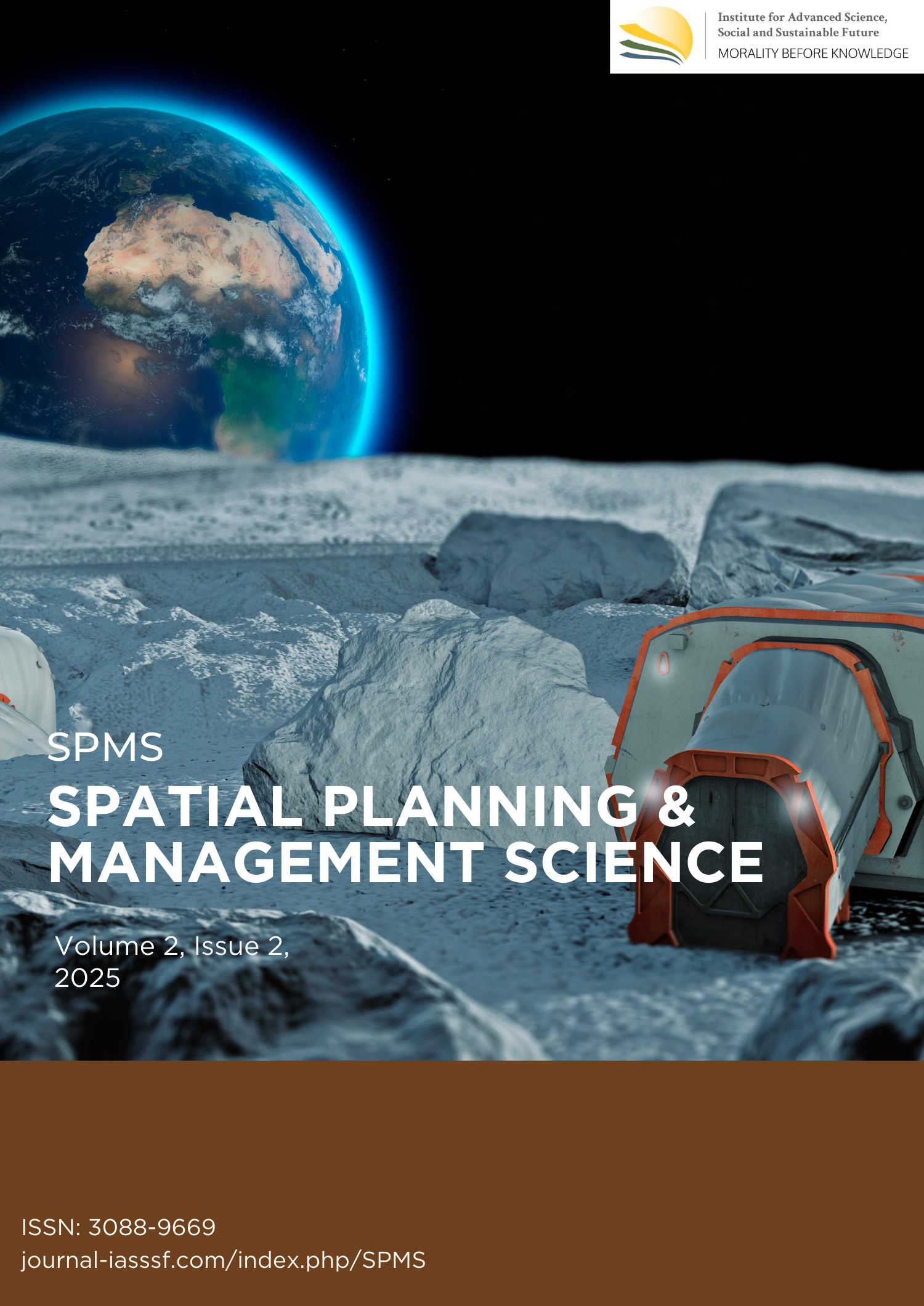Balancing industrial growth and environmental sustainability: Land use implications of cement factory operations in Ewekoro, Nigeria
DOI:
https://doi.org/10.61511/spms.v2i2.2025.2166Abstract
Background: The rapid pace of industrialisation and urbanisation has significantly reshaped rural and urban spaces, with the resultant widespread socio-spatial changes. These forces over time have put pressure on agricultural land and other complementary land uses, hence exacerbating spatial inequalities as well as contributing to income distribution inequalities. Cement manufacturing, considered as one of the leading measures of industrial and socio-economic development, is also one of the most resource-consuming and environmentally degrading industries. Thus, this study evaluated the land use effects of cement factories on Sustainable Development in Ewekoro, Nigeria, with the general aim of formulating strategies that will assist in reducing the potential negative impacts while promoting sustainable livelihoods to the people. Methods: The research adopted the multi-stage sampling technique to select the households for the survey in a systematic and representative manner. Out of the two hundred and forty (240) questionnaires administered, two hundred and thirty-three (233) questionnaires were retrieved from the respondents, representing a 97.1% retrieval rate. Findings: Findings revealed that employment opportunities and the provision of social facilities were the most significant socio-economic impacts in Ewekoro, with Relative Importance Index (RII) values of 0.914 and 0.870, respectively. However, the respondents also strongly perceived the adverse health effects due to prolonged exposure to factory emissions in the study area. Regarding sustainability, respondents acknowledged Lafarge Cement’s involvement in product technology innovation (RII = 0.7648), which supports environmental protection. Conclusion: The study concludes that policy frameworks of cement factories should emphasise green practices and eco-friendly technologies to optimise long-term socio-economic gains that align with the United Nations Sustainable Development Goals (SDGs). Novelty /Originality of this article: This study provides clear insights on the ways to foster a more balanced relationship between industrial growth, societal well-being, and environmental sustainability in Ewekoro, Ogun State.
Published
Issue
Section
Citation Check
License
Copyright (c) 2025 Oluwatoyin Olawoye Akinrogunde, Chukuma Chidi Famous, Rasheed Olawale Adegbindin, Olusola Opeoluwa Akinola, Rafiat Adesewa Ajibode, Faleti Oluyemi Oladeji

This work is licensed under a Creative Commons Attribution 4.0 International License.






